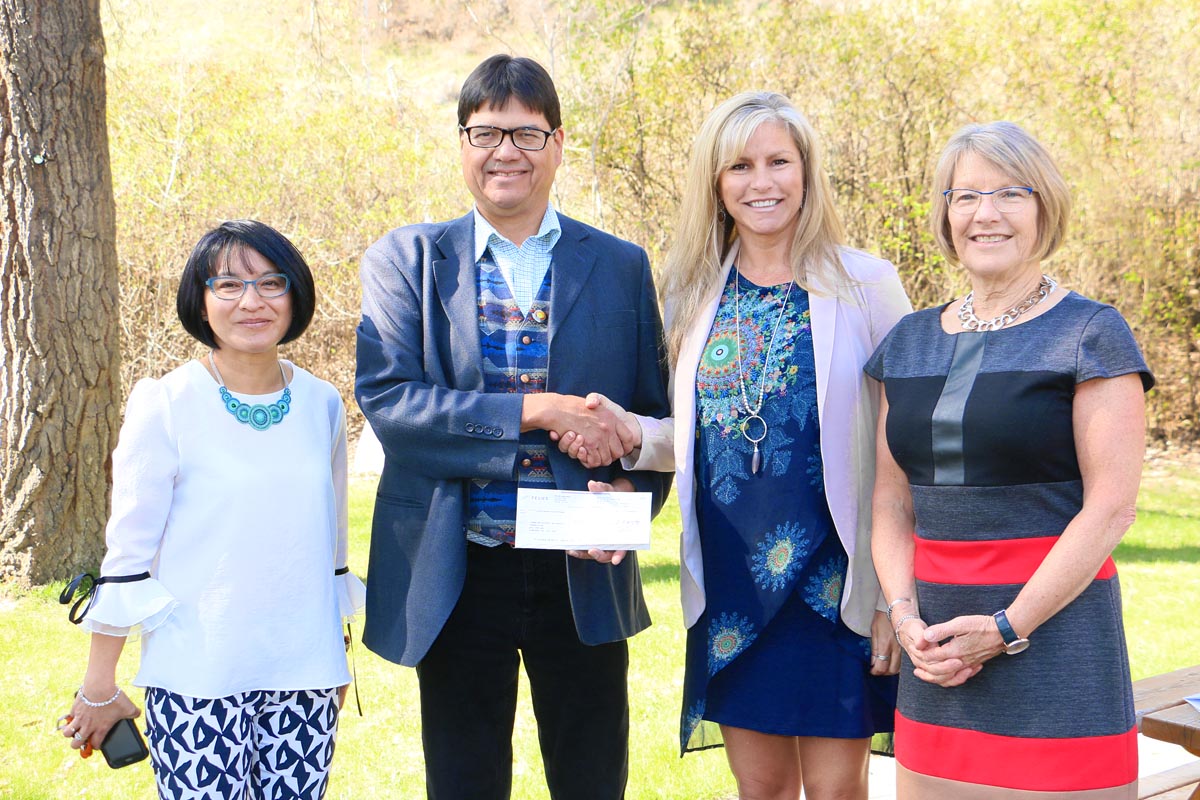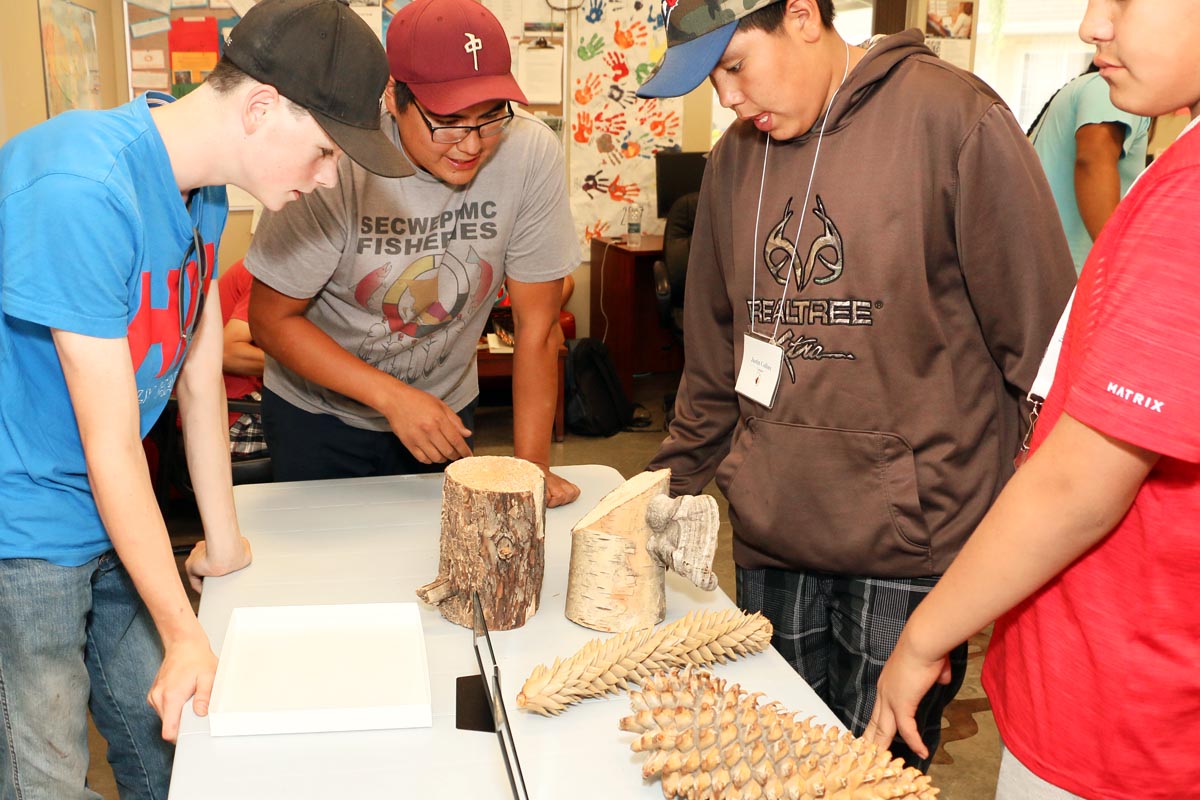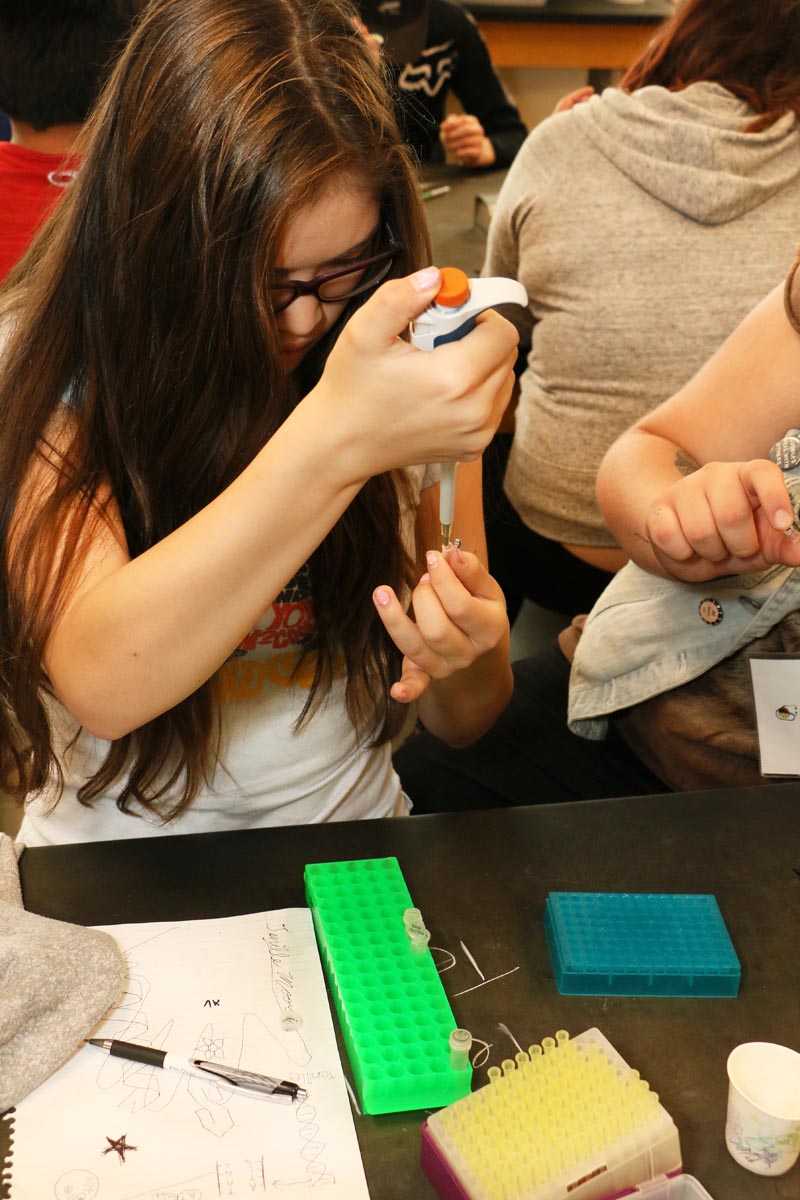
From left to right: Ann Cheeptham, camp co-founder; Paul Michel, TRU Director of Aboriginal Education; Wendy Heshka, Telus Community Foundation; Karen Gamracy, TRU Director of Advancement
This July, TRU’s Aboriginal Youth Summer Camp in Science and Health Science celebrates its 10th birthday and in advance of that, this week received something of an early gift in the form of $10,000 from the Telus Community Foundation. Among the fund’s criteria: projects addressing youth, the environment, technology and education.

Natural resource science student Jeremy Sterling (second from left) explains different species of trees during last year’s camp.
To recognize and honour the gift, a ceremony was held outside Cplul’kw’ten on April 26, and among the attendees was one of the camp’s two co-founders.
“This $10,000 is going to be very useful and very helpful towards being able to provide all the activities that help make the campers feel more welcome on campus when they stay here,” said microbiology faculty member Ann Cheeptham, who, along with nursing faculty member Star Mahara, founded the camp. They continue to be part of the organizing committee.
Before receiving the gift, Cheeptham said organizers were looking at a $15,000 budget to run the July 30–Aug. 3 camp for 20 students in grades 9–12 and coming from different parts of BC.
Over the years, the camp has proven popular, with registration usually full by the end of May and some students returning more than once.

2017 campers involve themselves in a DNA activity presented by Geneskool, an outreach program of Genome BC.
An activity-packed week
During the five-day camp, students attend hands-on mini-classes that provide insight into various career paths in sciences and health sciences. They also become familiar with TRU and what Kamloops has to offer.
Classes in the past have focussed on biological sciences, chemistry, computing science, math, natural resource science, nursing, respiratory therapy and more. Genome BC’s Geneskool was on hand last year as was Science World British Columbia.
Indigenous knowledge, ways and understanding are woven into the curriculum; for example, students learn to identify and harvest plants for medicinal and food purposes. Classes are led by TRU students, faculty members and members of the community.
Complementing the learning activities are recreational ones such as swimming and rock climbing, which are intended to develop friendship, camaraderie and collaboration.
Not cheap to run a camp
Among the camp’s bigger expenses:
- food
- housing campers at the TRU Residence and Conference Centre
- stipends for the TRU chaperones who also serve as mentors
- stipends for the workshop presenters
- transportation and fees for the off campus events like indoor rock climbing, swimming and possibly a day trip out of town.
In addition to the $175 registration fee, campers are responsible for their own travel costs to and from the camp.

